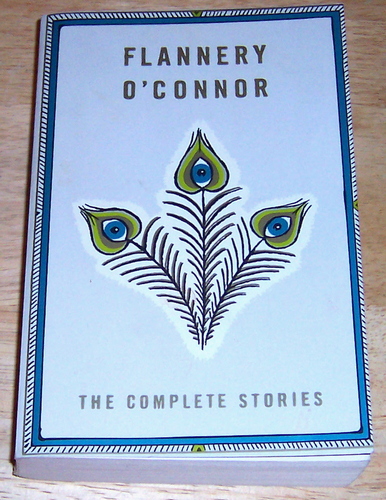Have you ever seen that show Storage Wars? It airs on A&E and is described on their website as an “original real-life series…which follows four professional buyers and their teams as they scour repossessed storage units in search of hidden treasure.”
The episodes begin at a storage facility in southern California. The entire operation is run by an auctioneer and some sort of overseer. Many people show up to bid on the units, but everyone is allowed just a quick glance inside before each auction begins.
Prior to seeing the show, I suppose I hadn’t considered what happens to items in storage units that go unclaimed. Units are repossessed when owners disappear, but they’re also repossessed when someone can’t pay their storage bill for a period of time. Or, I suppose, when the owner dies and no one comes to claim the stuff. An aside: I get preoccupied with this aspect of the show, the wondering about what happened to these people? Sometimes, the unit seems to hold someone's every possession and yet…where did they go? A&E should have another show tracing these disappearances, in my opinion.
After the auction, the “professional buyers” (two own resale/consignment shops) enter the units they purchase and start to dig. Sometimes they find interesting, potentially valuable items and sometimes they don’t. At the end of the day, profits and losses are tallied.
The appeal of the show stems from two aspects: the personalities of the buyers and the chance that we could watch them find a million dollars, basically. This last thing far outweighs the personality part, which is mostly editorially enhanced, I think. But once in a while there’s a true surprise and that’s exciting, the thought that each of us could have, among our belongings, something immensely valuable.
I bring this up because like most things, it reminds me of the creative process. Our brain is a storage unit full of thoughts and memories and we are the professional buyers, pulling up the big metal door to excavate for possible riches. At times, there’s something obvious. If one of the buyers of Storage Wars is lucky enough to buy a unit that contains a safe, and if, when they crack open the safe and find a load of gold coins…well, you can be pretty certain it'll be worth some money. But if they find a strange, engraved box which plays music when you open it and seems to have some German writing on the bottom…you won’t know until the end of the show whether this might make the buyer’s day/week/year.
I think all writers begin with the big ticket items. Traumatic events from childhood, people, places and ideas that stimulated and educated us as we grew up, conflicts with parents, our first romantic relationships, our first travels, even styles of writing we found exciting. These, all important, all worthy of appraisal. Later, when you have to dig a little deeper—the time your family was on vacation and a girl was missing, a stunted flirtation you sometimes think about, the reason you quit that job/relationship/belief system. (By the way, none of these are personal; I made them up). Oh, and you can also completely make things up.
Luckily, our lives are continually forming new storage units; items continue to pile up and you never know for sure which ones will bring what you’re looking for. One difference, I suppose: there are no other “buyers’ for your unit. You have to fight with yourself.















